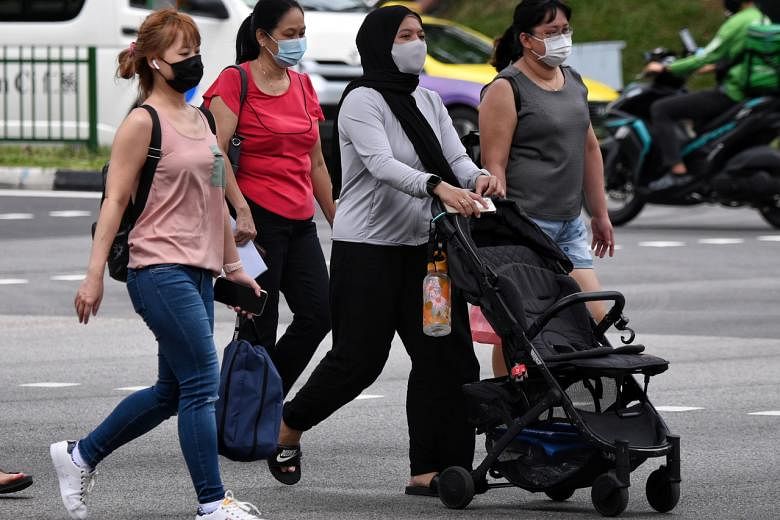SINGAPORE - Women often have additional caregiving responsibilities, caring either for children or elderly parents.
So, more needs to be done to support them financially and emotionally, said Prime Minister Lee Hsien Loong on Saturday (Sept 18) at the virtual closing session of the Conversations on Singapore Women's Development.
Such additional caregiving responsibility is one of the hindrances to women's work and careers, as caregivers have to make many significant sacrifices, he said.
On Saturday, Minister of State for Education and Social and Family Development Sun Xueling said a survey conducted under the initiative found that women in dual-income households were five times more likely than men to be managing housework and caregiving responsibilities.
Women were also nearly four times more likely to have left their jobs for caregiving than men, she added.
Noting that being a caregiver is both hard work and "heart" work, PM Lee said: "Their careers are affected. Caregiving expenses can be substantial.
"The caregiver finds it harder to build up his or her own retirement savings. This can leave caregivers, particularly full-time ones, very vulnerable."
Many participants in the conversations felt strongly that it was unfair on the caregivers, he added, agreeing that caregivers, whether women or men, deserved more support.
One direct avenue is to provide more financial assistance, said PM Lee.
To that end, the Ministry of Health (MOH) is studying how it can enhance the Home Caregiving Grant scheme, to provide more help for targeted groups.
Said PM Lee: "No amount of money will fully compensate for the sacrifices that caregiving demands but we know that many caregivers would appreciate some extra help."
Another important issue was the well-being of caregivers themselves, as many said they often had no personal time, and did not know where and how to seek help.
Many ended up exhausted and burnt out.
PM Lee said MOH was studying how it can expand the options for respite care to meet the varied needs of caregivers.
In a Facebook post on Saturday, Parliamentary Secretary for Communications and Information and Health Rahayu Mahzam, who is one of three co-leads of the review, said the initiatives will go a long way in providing better support for seniors, their caregivers and families.
She said: "The conversations have brought to the fore that women who reach their full potential will enhance all of our lives at home, in schools, workplaces and the community.
"But to achieve this, we will need a whole-of-society effort from men and women to shift our mindsets and overcome societal stereotypes on gender roles."
Ms Fannie Lim, executive director at charity Daughters of Tomorrow, hoped women who have stopped work to be caregivers at home can be given automatic top-ups to their Central Provident Fund accounts.
She said: "I was a stay-at-home mum for six years.
"Naturally, when you stop working, there are certain benefits not available to you. So, if we can have some sort of recognition for caregivers, in very practical terms like subsidies or even some form of income supplement, that would be good."

